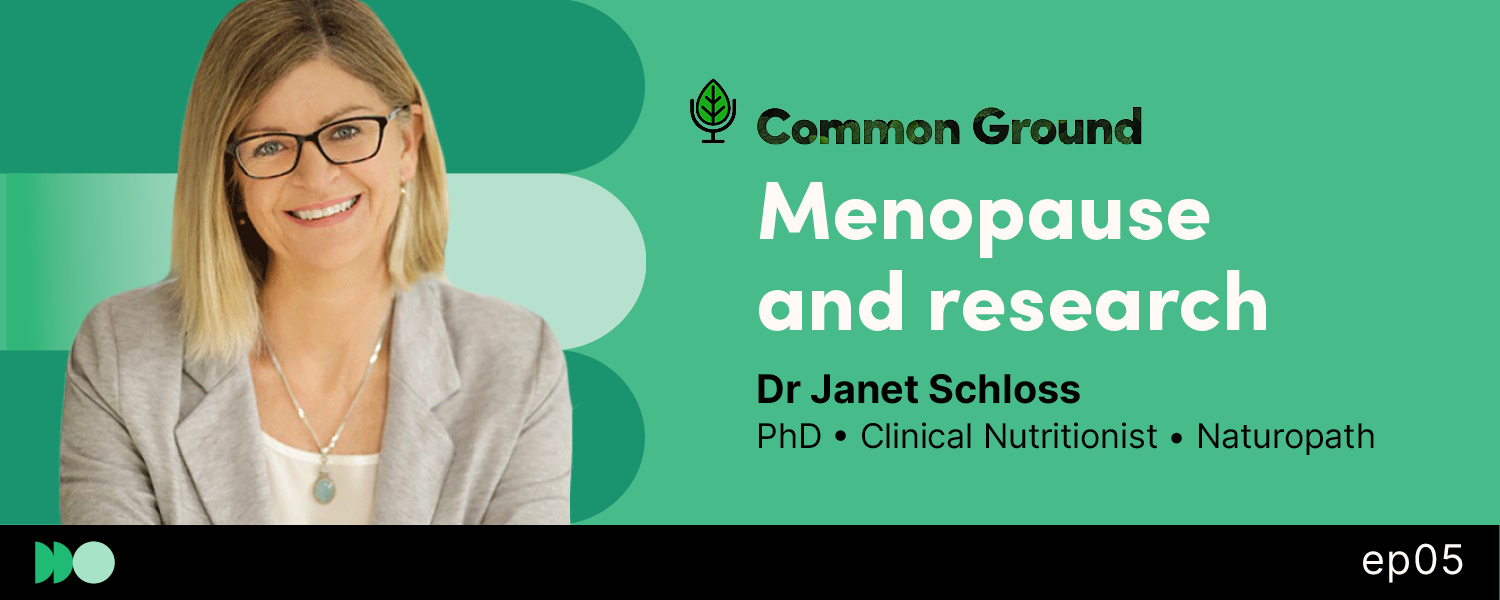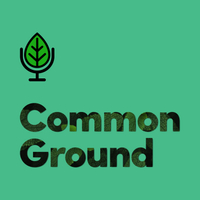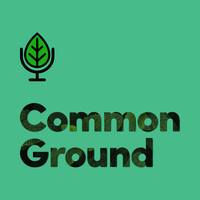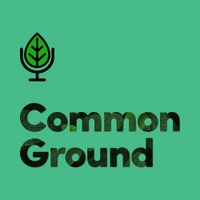
Listen on Amazon music | Apple Podcasts | Google Podcast | Spotify
Transcript
Jacqui Fahey (0:00): Welcome to Common Ground, a weekly podcast, discussing new research and interesting projects in the field of complementary medicine. Hello, my name is Jacqui Fahey, Head of Education at vital.ly. Joining us today on Common Ground is Janet Schloss.
Janet is a naturopath and nutritionist who has been in private practice for over 15 years and completed her PhD at the School of Medicine at University of Queensland in Australia. She has also lectured in Naturopathy at the Endeavor College of Natural Health. Her main specialty is Naturopathy and people who have cancer and chronic diseases, especially those going through conventional medical treatment.
Janet has written chapters for various books, including Clinical Naturopathy by Sarris and Wardle, and Cancer, a Biochemical and Nutritional Approach by Henry Osiecki. Janet has numerous publications in regards to cancer and autoimmune diseases and she works closely with organizations such as the Mater Private Breast Cancer Clinic and the Kim Walters Choice Program, giving nutritional seminars and advice. Dr. Schloss regularly conducts clinical trials, with her latest project being on herbal medicines and menopause.
Welcome, Janet.
Dr. Janet Schloss (01:17): Thank you so much, Jacqui. It's great to be here.
Jacqui Fahey (01:20): Thank you. So, before we explore your latest research project on menopause, how did you come into working within the research space?
Dr. Janet Schloss (01:24): Yeah. You know what, I've always loved research and originally when I first graduated as a naturopath and nutritionist, I was working some clinic, and then I started doing some work with Henry Osiecki and was doing just basic type research and stuff research for him, writing PowerPoints and presentations and that started to get my interest.
And then going into a post-grad into clinical nutrition, just fired it up a little bit more, then I ended up having a baby. And while I was pregnant, trying to think about where I actually wanted to head. And one of the things I realized, particularly when seeing patients, was that we still had a big gap in the amount of naturopaths or natural therapist who were conducting clinical trials to get us evidence, to help with our practice. So, I decided to undergo a master's and PhD in research with the School of Medicine to be able to then get the qualifications to be able to conduct research. And since then, it's only just continued. I still love it.
Jacqui Fahey (02:37): Oh, fantastic to hear. Good on you. And there has been a gap, hasn't there? So it's great that qualified naturopaths can be moving more so into this research space.
Dr. Janet Schloss (02:49): Absolutely.
Jacqui Fahey (02:50): So what is the current project you're working on?
Dr. Janet Schloss (02:54): Yeah. So, for this one, we've got a number actually, but for the menopause one, what we're about to start actually, when recruitment should hopefully start towards the end of this, next month, is a herbal weight loss product. It's actually on the market at the moment, it's called Happy Hormones. And we're doing a phase two clinical trial, which basically means that we're comparing the investigational product, which is the Happy Hormones, to a placebo in ladies who are experiencing menopausal symptoms.
And that, basically the main part of that is definitely the hot flashes or the vasomotor symptoms that they actually experienced. And the criteria basically looking at three or more hot flushes or vasomotor symptoms every day is one of the start of the criteria. But it's also looking at the anxiety and the sleeplessness and everything else that the ladies actually experience for it.
So, the actual trial itself, for each of the participants, where they're looked at for 12 weeks with the investigational product. It is an online telehealth type trial. So, this is an exciting new space that COVID has actually opened up to the world. It's quite a rare thing that actually happens, but anyone in Australia can actually apply for this because it is actually a telehealth.
Jacqui Fahey (04:23): Oh, wow. That's really interesting. No, I haven't heard about that. So, that's possibly one of a few methods of conducting such a trial.
Dr. Janet Schloss (04:31): Yeah. Sorry, I didn't quite hear the whole question, but it has changed the space of conducting clinical trials. And a lot of people had to go online last year and you're not always able to do that. But with the different clinical trials and different methodology, the methodology is exactly the same.
It's just how you get the case reports completed and how you do the diaries. And how you actually get the investigational products to them, so it's more posting. How you conduct the blood test. So you can send out the biology request forms to them to actually then get collected. Making sure you actually get a written consent back.
So, it's a whole new processes that are actually now being employed, that these telehealth. It's great. And it honestly, opens it up to me. But a lot of people in, especially rural societies in Australia, miss out on clinical trials. This gives them a great opportunity to actually be involved.
Jacqui Fahey (05:33): Yes. Yes. Very true. And what are the herbs that are in this testing for your research project?
Dr. Janet Schloss (05:41): Yep. So there's pretty well, your normal menopausal herb that you expect, with your black cohosh, sage, there's maca, there's red clover. There's a tiny little bit of licorice that's actually in there. What else? I'm trying to think off the top head. The chaste tree are some of the different herbs that are actually involved with it. So it does actually encapsulate quite a lot. Obviously with some of the ones I've actually said there are inclusion, exclusion criterias that would not allow people to be able to be part of the clinical trial, but the herbs in general, all cover the different aspects that ladies going through menopause do definitely experience.
Jacqui Fahey (06:28): Yes. And why do you think it's important to trial particular herbal medicines like this?
Dr. Janet Schloss (06:35): I think it's really important that we should trial all that products. I think that there's a way that we've been doing where we can put things together and then we can put it onto market without any clinical trials ever being conducted on that particular product. Even though that all the herbs are considered to be safe. So that, and they can have different, I guess, caveats and stuff on it. But we don't know if they're actually going to work in that particular combination.
So, I think it's really important to actually have concrete, robust type research that is conducted on our complementary medicines or herbal products that actually show that they actually are effective against a placebo in a clinic trial setting.
And for our industry and profession, that's really important because we're always questioned on our research and our products. There's always comments in regards to weeding out different things or putting down the type of research that we conduct. The more we actually conduct the same gold standard RCT exactly how pharmaceutical trials are actually run, the better we are as an industry and profession.
Jacqui Fahey (07:53): Yes, agreed. And is there certain minimums that you have for the number of people in this study?
Dr. Janet Schloss (07:58): Yep. So, the minimum is around 120, but we're aiming to get over 140 people.
Jacqui Fahey (08:04): Okay, great. And so, what happens next once you've completed the research?
Dr. Janet Schloss (08:10): Once we actually complete this particular research run on this product, what we're hoping to be able to obviously, is then, is definitely going to be writing a paper and selling out the results and stuff like that.
But the other good thing is that if the results come out positive, you never know when you're doing a clinical trial, but if it comes out positive, then that gives the product company the ability to be able to have that claim on their product when they sell it. And it also gives the consumers the confidence that they're choosing a product that has actually undergone rigorous testing. They know that it's actually safe. They know that it actually has been found to be effective. And there will always be a certain percentage that it will be effective. So, I think overall, it helps the company, but it also helps the consumers as well to have confidence in the products that they're actually buying.
Jacqui Fahey (09:09): Yes. Agreed. And is there anything further that you'd like to contribute today?
Dr. Janet Schloss (09:11): Going through menopause myself, I think that it's actually an area that has been talked about, but is not discussed extensively. And I think that there's been so many conflicts in regards to menopause. Particularly women looking at HRT and the research that came out, that it increases the risk of breast cancer and that really make people start to look outside the box and wanting to look at complementary medicines and seeing what can actually help, and not help, and that type of thing. So I think we, as women and men, actually do need to start talking about menopause a little bit more and not just pushing it under the box and saying, it's just... Well, it is a natural part of life but acknowledging the differences in systems that are going on and the experiences that the actual ladies have. And really finding products that do work, because not every product's going to work.
Jacqui Fahey (10:10): Yes. Yes. And with regards to black cohosh, was there some research a few years back with regards to liver health?
Dr. Janet Schloss (10:14): Yeah, there was. So, there was some research that actually found that in certain people with liver disease or liver damage, that they won't be able to use black cohosh because it can actually cause liver problems. So, it's one of the reasons why, when we're conducting trials like this, that we do actually have to monitor the liver function. And an exclusion criteria is anybody who has major liver disease or a high liver enzymes.
Jacqui Fahey (10:39): Yes. And so, there's various products out there for menopause. Is it just a matter of what suits the individual?
Dr. Janet Schloss (10:47): Yeah, absolutely. And I definitely think it is because even when you can find a product that is being found to be effective, like I said, there's only a certain percentage of people that it will actually work for. Some will actually work for some people and not for others. So it's about trying them until you find the one that actually works for you.
Jacqui Fahey (11:04): Sounds very interesting. Well, we certainly look forward to hearing further with regards to your research results. And thank you for your time today on Common Ground, Janet.
Dr. Janet Schloss (11:15): Thank you so much, Jacqui. It's always a lovely to speak to you.
Jacqui Fahey (11:24): You too. Thank you.






